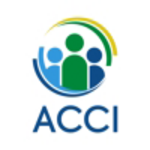IMPORTANT NOTICE: The date, time, and room assignment of YOUR presentation is SUBJECT TO CHANGE.
Proposal authors can use this tool to see where they have been placed in the program agenda for an Oral or Poster Session.
Scroll down to search by the Submitter or Author Name, by Date/Time, or by Keywords by expanding FILTERS.
Confirm your place in the schedule by following the instructions that were emailed to you. Each presentation must have a separate paid registration. Contact the ACCI office immedicately by email at admin@consumerinterests.org to report any conflict, all corrections to the details of the presentation (including author names and the order they are listed as this is how it will be in the final program), or if you have any questions. Please be sure to reference the session title(s), date(s), and time(s) when you contact us.
F2c First Financial Footsteps: Parental Transmission of Bank Account Ownership
Short Description
When do children get bank accounts? What type of households have children with bank accounts, and how is having a bank account as a child associated with earnings outcomes as a young adult? Only a quarter of 15-year-olds have bank accounts, but two-thirds of 21-year-olds have one according to our survey data. This rate is significantly lower than for adults, and varies significantly with the type and characteristics of the household. We ask which parent and child characteristics, such as marital status, income, and race and ethnicity, best predict child bank account ownership. We find that married two-parent households and higher income households are more likely to have children with bank accounts. Controlling for income, children of white parents are more likely to have bank accounts, and children of white single mothers or fathers are more likely on average than children of Black and Hispanic two-parent married households.
Type of presentation
Accepted Oral Presentation
